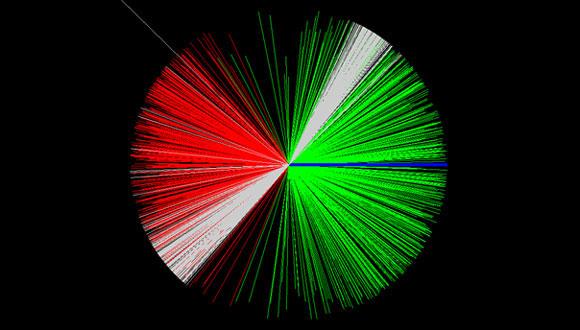Joint Seminar in Nuclear Physics
PROGRAM
14:30 - 14:45 Refreshments
14:45 - 15:45 "Efimov physics beyond three particles", Betzalel Bazak, HUJI
Abstract:
More than forty years ago, when the Efimov effect was predicted, it was mainly considered as a curiosity. However, recent theoretical and experimental progress reveals the richness of Efimov physics and its importance to several areas of physics. Originally, Efimov has dealt with the case of three identical bosons interacting resonantly. A few years later he has also considered the (2 + 1) system, composed of two heavy identical fermions interacting with a lighter atom. I will review recent theoretical progress seeking Efimov physics in systems composed of more than three particles. The first candidate is the case of identical bosons. Indeed clusters of more than three bosons are tied to each Efimov trimer, but no independent Efimov physics exists beyond three bosons. The case of a few heavy fermions interacting with a lighter atom will also be considered, where the mass ratio of the constituent particles plays a significant role. Following Efimov’s study of the (2 + 1) system, the (3 + 1) system was shown to have its own critical mass ratio to become Efimovian. I will show that the (4 + 1) system becomes Efimovian at mass ratio which is smaller than its sub-systems thresholds, giving a pure five-body Efimov effect. The (5 + 1) and (6 + 1) systems will also be discussed, showing the absence of 6− and 7−body Efimov physics there.
15:45 - 16:15 Coffee Break
16:15 - 17:15 "Zero Degree Calorimeters for the LHC", Zvi Citron, BGU
Abstract:
Zero Degree Calorimeters (ZDC) are hadronic calorimeters whose primary purpose is to measure forward neutrons in heavy-ion collisions and play a key role in characterizing the nature of both hadronic and non-hadronic collisions. The ZDC are installed far downstream from central collider detectors (e.g. ATLAS & CMS) and pose unique and interesting challenges from an instrumentation point of view. Physics use cases in both nuclear and particle physics, as well as the technical challenges of these detectors, will be discussed.


